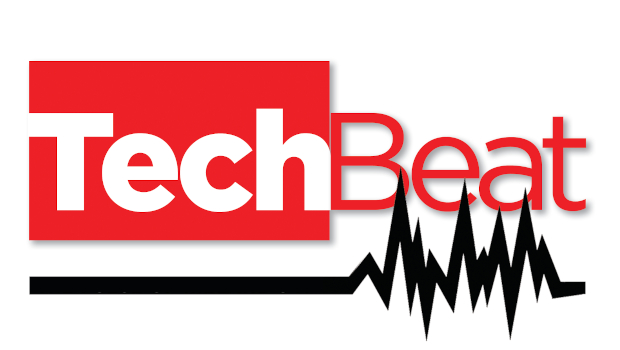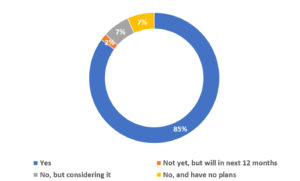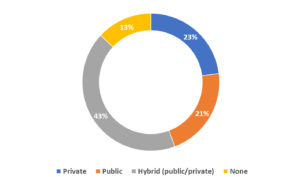Cloud computing is everywhere and there have even been suggestions that the term ‘cloud computing’ be retired in favour of just ‘computing’.
However, in becoming ubiquitous, has cloud also become a little fuzzy?
TechBeat, in association with Equinix, asked 123 Irish IT professionals about their organisation’s use of cloud technologies, to see who was using what and how, as well as their views on cost, future usage and providers.
The results that emerge show that not only is Ireland a cloud country, but that it will become ever more so in the next foreseeable future.
Sectoral breakdown
In terms of sectoral breakdown of respondents, the largest by far was technology and IT companies at more than a third (36%), followed by financial services (15%), government and public sector (9%) and manufacturing (7%). In the lower single figures transport, education, healthcare and construction also figured.
The survey opened by asking if respondents currently used cloud technologies. The overwhelming response was yes (85%), with just 7% saying no and indicating there were no plans to do so. Some 2% said they did not yet but will within 12 months and 7% said no but are considering it in some way.
“Cloud adoption is increasing all the time to the point where nearly all Irish organisations are deploying cloud in some form or another,” said Maurice Mortell, managing director for Ireland and emerging markets, Equinix. “All medium to large enterprises that we work with are either currently going on a digital transformation journey, or they are about to embark on one. Key to that is the cloud, as it gives businesses the ability and flexibility to scale. Today’s businesses must also be able to roll out new products and services faster than the competition and by utilising cloud technology, they can do that.”
Having established broad usage, the survey asked about the type of cloud technologies in use. Almost half (43%) use a hybrid cloud solution, while almost a quarter (23%) use private cloud, compared to slightly less (21%) who use public cloud. Mortell is clear on the reasons for these proportions.
“Using a mixture of public and private cloud provides a cost-effective and essential platform for accessing massive compute and storage resources. It also gives enterprises peace of mind when it comes to the storage of sensitive and mission critical data,” said Mortell.
Cloud inhibitors
Despite the level of cloud adoption, irrespective of form, there are still inhibitors. Respondents were asked for their top three and in combined scoring, security still emerges as the chief concern by some margin, followed by loss of control in data governance, and costs. However, also figuring in the concerns were lack of knowledge and skills in house, and a fear of vendor lock-in.
Taken in light of the figures for adoption, there is a surprising consistency in perceived barriers or inhibitors to cloud usage, as these same concerns have remained at the top of this list for some time now.
“Security is always a concern for CIOs and IT managers,” Mortell admitted, “so it’s not surprising that so many respondents cite security risks as the top barrier to cloud adoption, or increased cloud adoption. By using private cloud connections, however, the risk is significantly reduced. Equinix Cloud Exchange bypasses the public internet, so it’s not only a secure solution, but it also offers faster cloud connectivity.
When asked for the top three benefits for cloud, the averaged leader was disaster recovery, followed by flexibility to scale, reduced cost of ownership and operation was tied with speed of deployment, with collaboration and mobility support not far behind. Security was mentioned by some, but at a relatively low score.
Purely on first preferences, speed of deployment was the top benefit.










Subscribers 0
Fans 0
Followers 0
Followers